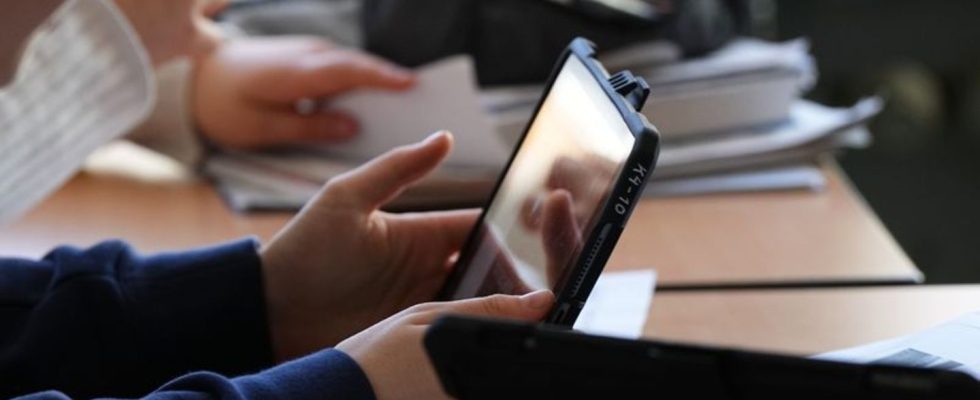Education
Survey: Schools lack IT specialists
Pupils at a primary school in Berlin solve a task on tablets in class. photo
© Soeren Stache/dpa
WLAN, tablets, smartboards: schools have been technically upgraded in recent years – but there are only a few specialists who take care of support, maintenance and updates. That’s a problem.
Only about every tenth school in Germany has one According to the survey, one IT specialist is employed. In a Forsa survey of more than 1,000 school principals commissioned by the Deutsche Telekom Foundation, 11 percent stated that they had such a specialist in their facility.
In very few elementary and special schools (6-7 percent) there are such employees, in 16 percent of grammar schools, of the Hauptschule, Realschule and comprehensive schools at least 19 percent stated that they have technicians for the care and maintenance of their digital technology .
Digital Pact School
According to the survey, more than every second school management (53 percent) would like an IT specialist. Along with the shortage of teachers, the problem is one of the most pressing issues in education policy at the moment. Because it is also about the so-called digital pact school and its possible continuation.
The funding program was launched in 2019 to upgrade the schools technically. It expires next year. The federal government had initially provided five billion euros, for example for the construction of the school’s own WiFi and the purchase of interactive boards (smartboards). In the course of Corona, the program was increased three times, also to purchase tablets.
No concrete plans
But technology needs updates. Networks and websites have to be looked after and maintained, otherwise the digitization that has been pushed will come to a standstill again. In its coalition agreement, the traffic light had therefore announced a follow-up program, a “Digital Pact 2.0” with a term until 2030, for the “sustainable new acquisition of hardware, the replacement of outdated technology as well as device maintenance and administration”. Since there are no concrete plans for this yet, doubts have recently been raised as to whether the plan will become anything in view of the current savings efforts.
When asked yesterday, a spokeswoman for the Federal Ministry of Education assured that states and municipalities should be supported in the digitization of the education system, as stipulated in the coalition agreement. “That’s why we are of course working on the Digital Pact 2.0 and talking to the countries about it.” However, according to their information, the new funding program should not start before 2025. There is criticism from the education union GEW, which speaks of a funding gap.

